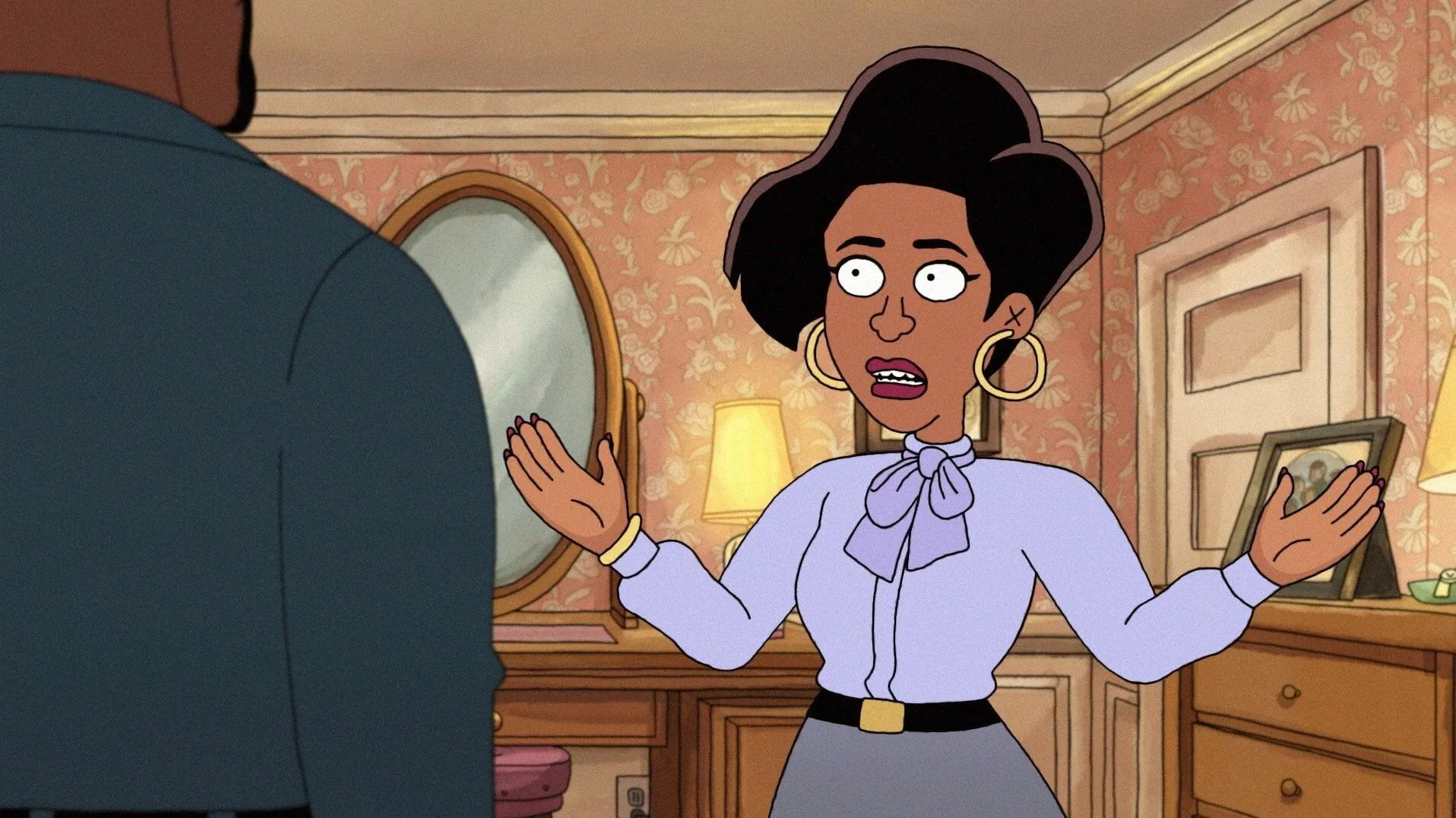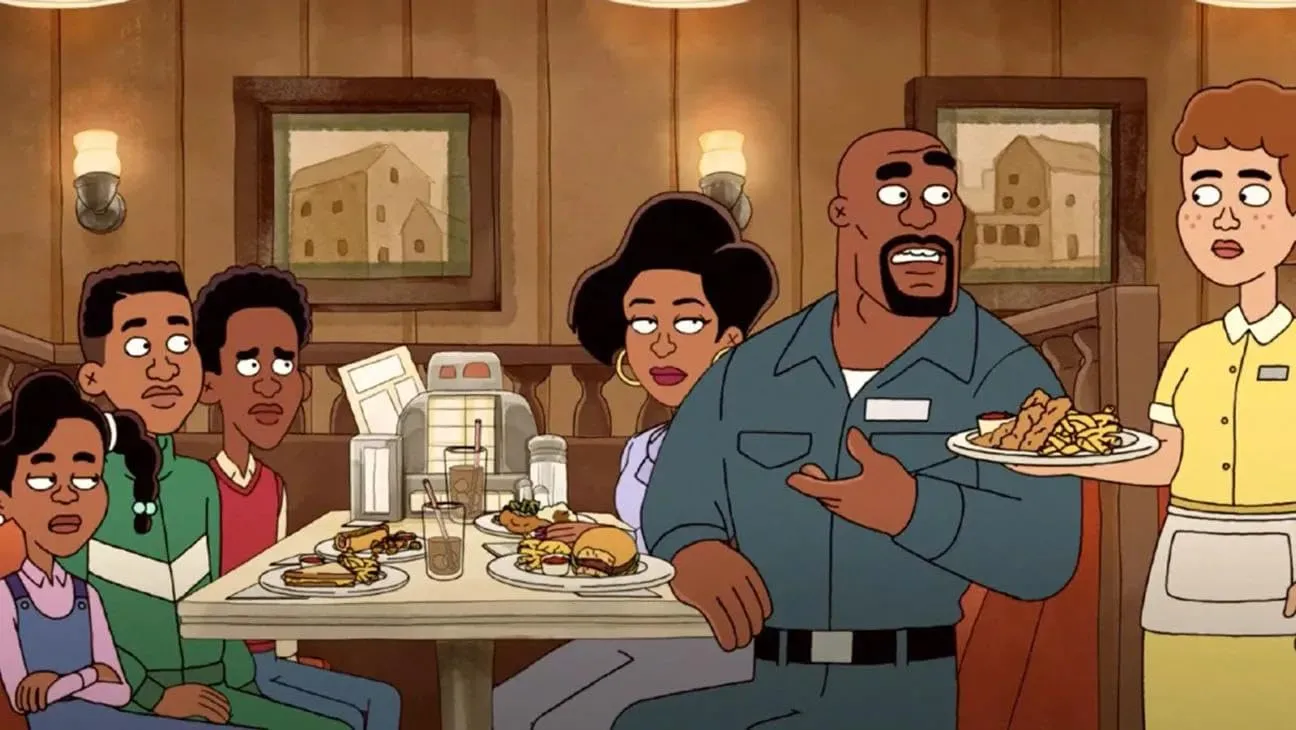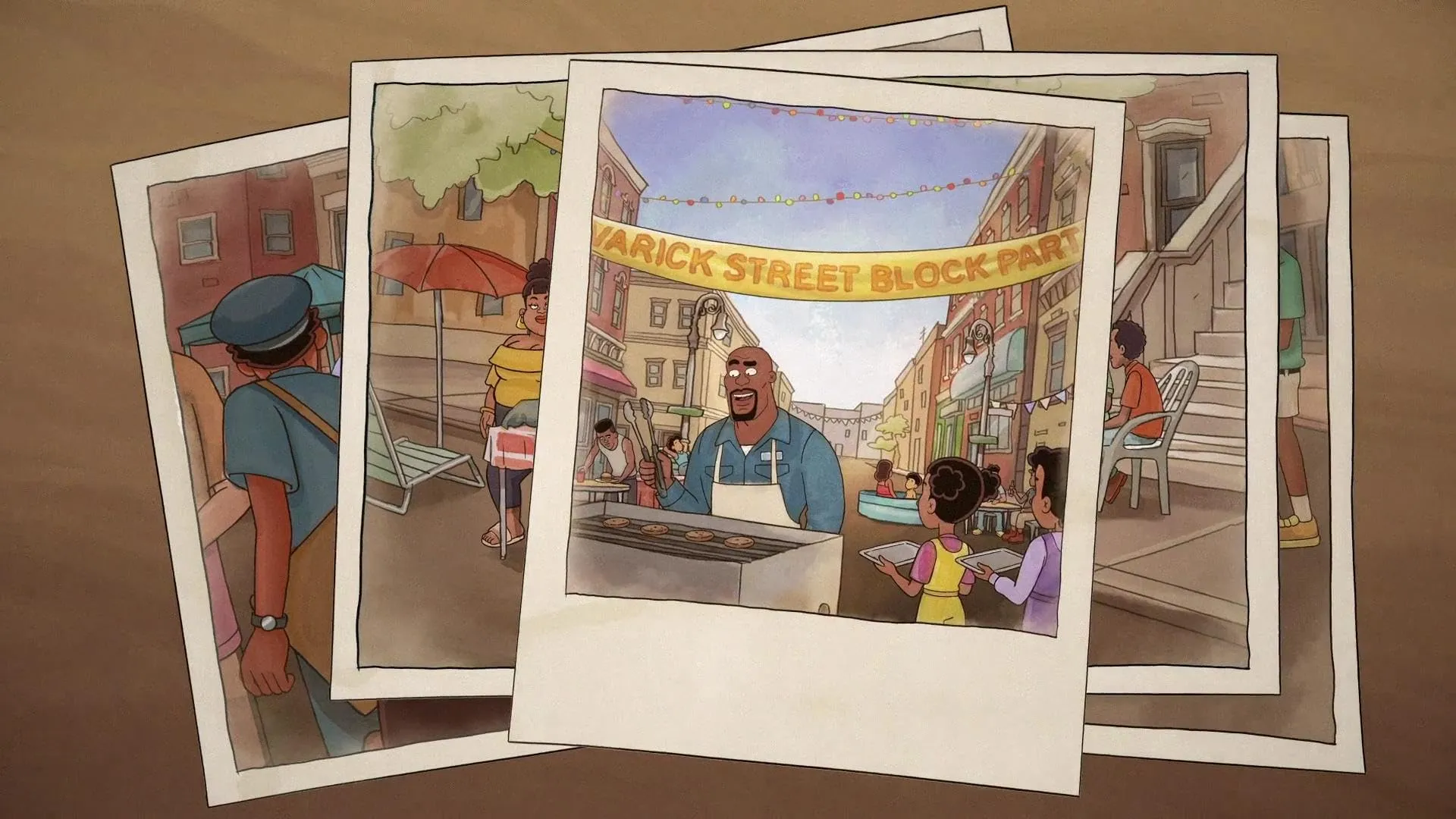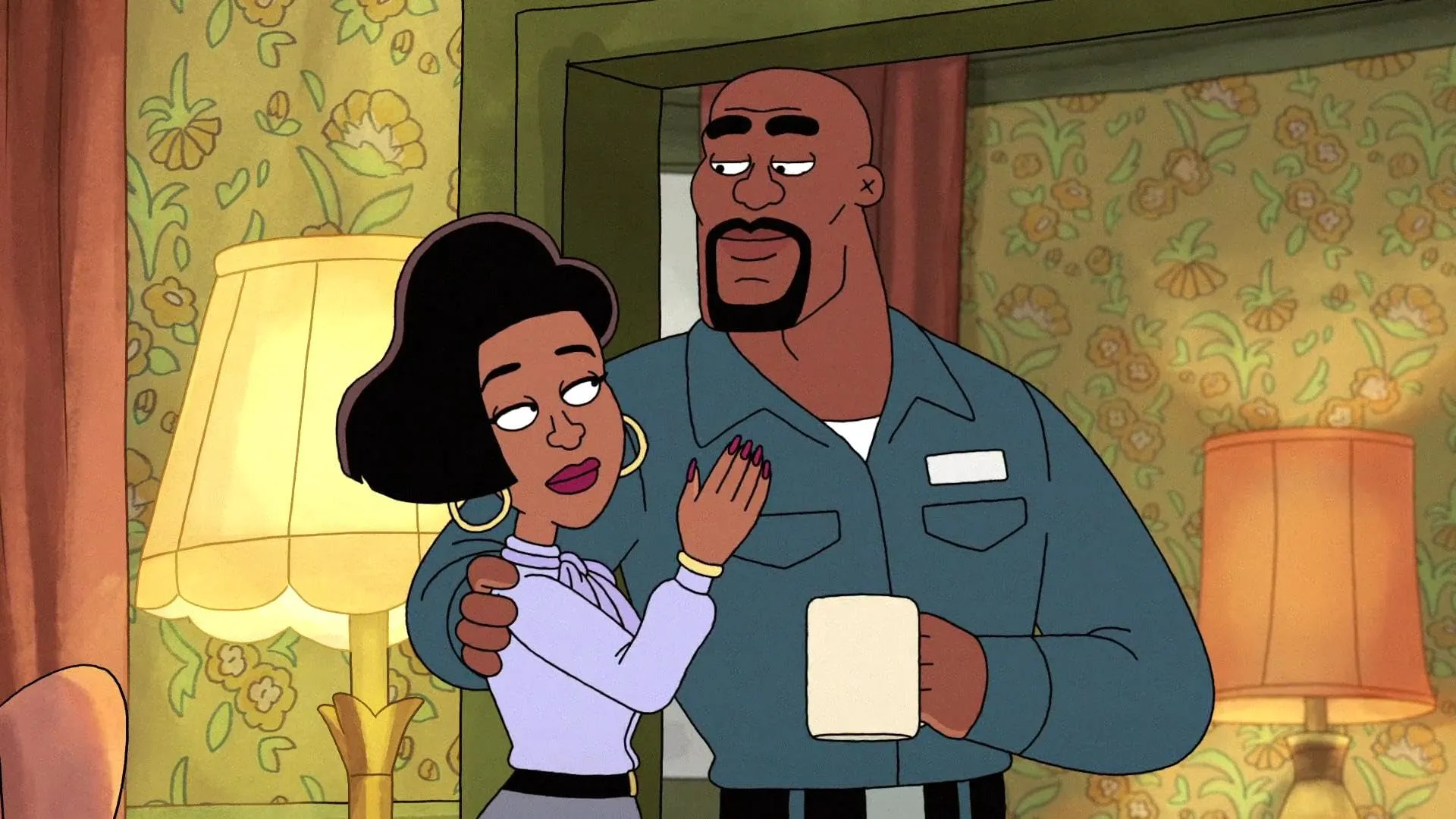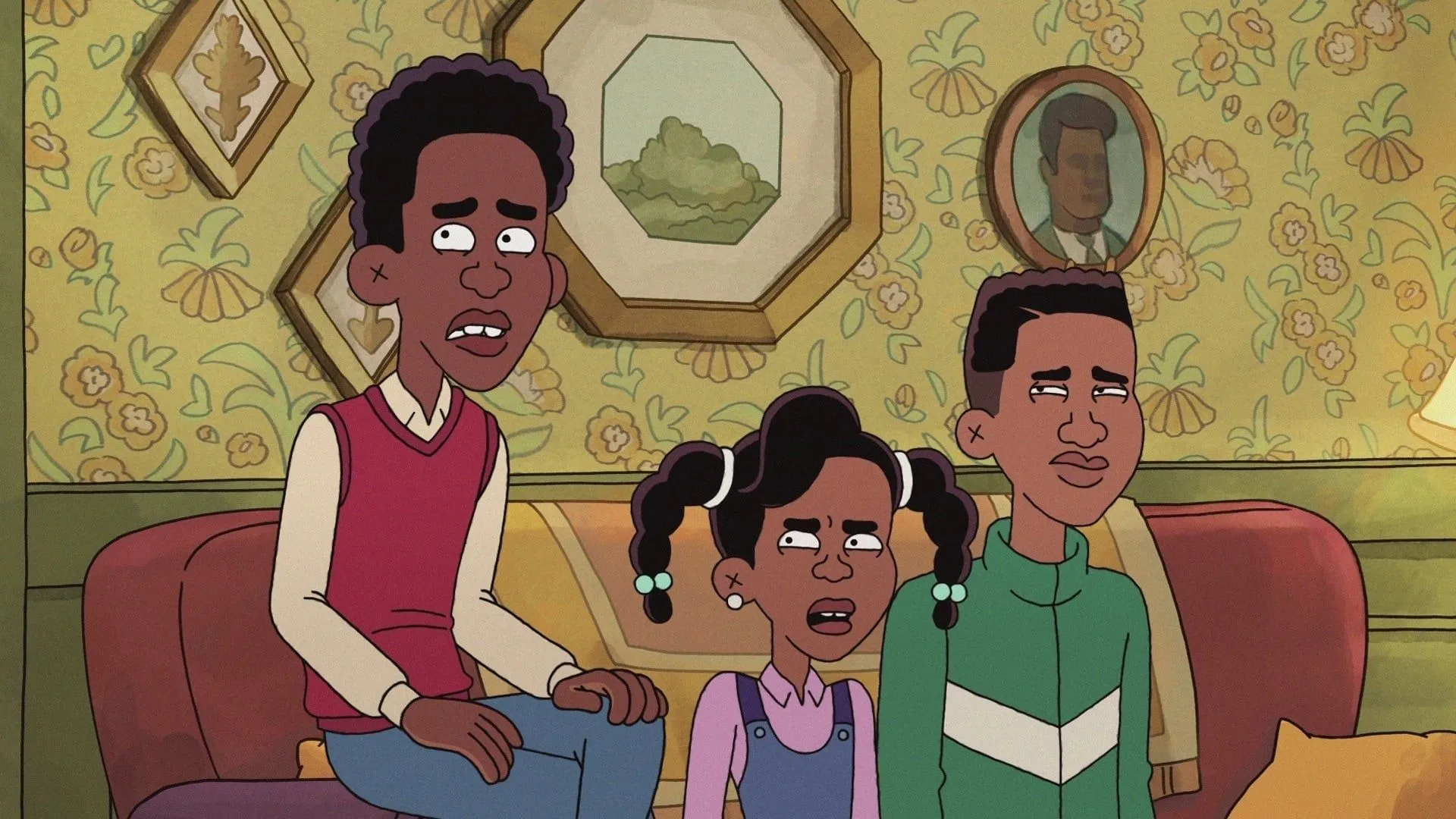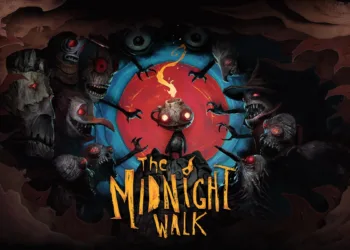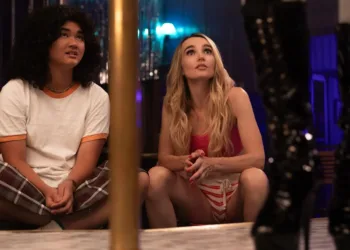In the wide theatre of television, where memories are painted over and remade, Everybody Still Hates Chris’ transition from live-action to animation unfolds like a bizarre dream—a depiction of nostalgia refracted through the lens of current ridiculousness.
Here, the essence of a bygone age is distilled into vibrant colours, but the shadows of its past linger, provoking a reckoning with the complexities of identity and belonging. The narrative opens in Brooklyn, 1987, where Chris Rock’s recognizable voice serves not just as a guide but also as a spectral presence, a reminder of the difficulties experienced by a young child navigating the dangerous waters of adolescence in a world that is often unsympathetic to his struggles.
Like the original, the animated sequel grapples with the existential weight of Chris’s experience as he confronts the ghosts of his past failures—a poignant metaphor of which is the GED test that haunts him. It is a story rooted in the dark humour of resilience, in which family ties serve as a sanctuary and a cause of strife.
As Chris’s family dynamics change, we are reminded that the journey through childhood is not just a passage of time but a continual struggle against the tides of society’s dynamics and personal aspirations.
The narrative framework mixes humour and tragedy, capturing moments of fun punctuated by an unnerving knowledge of the structural challenges that pervade Chris’s world. This duality asks viewers to reflect on the nature of growth and the scars that accompany it, leaving us to ponder: how does one carve out a space for authenticity in a society that frequently vilifies the vulnerable?
The Anatomy of Resilience: Characters in Flux
In Everybody Still Hates Chris’s vibrant, multicoloured world, the characters emerge not as caricatures but as vessels of existential inquiry, symbolizing the struggles of identity and familial loyalty against societal indifference. Chris, the protagonist, is a moving portrait of the adolescent experience—an ever-changing patchwork of hope, fear, and rebellion.
His journey across this animated landscape is complicated by the weight of self-imposed and externally dictated expectations. We see not just a youngster but a rich tapestry of human experience—one that questions the very nature of success and the cost of authenticity—as he grapples with the shadow of failure, particularly in the form of his failed GED.
Chris’s steady parents, Rochelle and Julius, anchor in this stormy sea. Their dynamic, full of humour and pathos, illustrates the duality of parental love: nourishing but smothering. In a world that frequently seemed to conspire against them, Rochelle’s intense determination and Julius’ frugality capture the essence of survival. We see the delicate dance of responsibility and sacrifice in their interactions, illustrating how love can empower and entrap.
The supporting characters, especially Chris’ pals such as Greg, provide complexity to the narrative. Often viewed as a cowardly sidekick, Greg discovers his voice amidst the commotion. His ambition to start a breakdancing club becomes a microcosm of their connection, representing teenage exuberance andnherent conflicts of aspiration and loyalty.
Their interactions highlight important questions about how we navigate the boundaries between friendship and individualism. As Chris and Greg struggle over their opposing ideas, the tension reveals an unsettling reality about growth: sometimes, the path to self-discovery is littered with the rubble of broken relationships and hidden truths.
In this animated world, where laughter coexists with the shadows of reality, the characters are more than just surviving; they yearn for connection, grappling with the weight of their decisions, and, ultimately, chasing the elusive spectre of belonging.
The Canvas of Expression: Animation and Voice in Flux
Everyone Still Hates Chris’ animation technique unfolds as a vibrant yet dissonant canvas reflecting adolescence’s tumultuous beauty. The visual approach shifts between the whimsical and the macabre, capturing the essence of a world full of humour and misery.
The characters are depicted in exaggerated forms, with their faces heightening the emotional stakes while also serving as a commentary on life’s absurdities. Here, animation becomes a liberating tool, enabling visual humour and strange moments that would be difficult to achieve in live-action. However, this flexibility has inherent tension; the bold strokes of colour and form can sometimes eclipse the subtleties of character development, calling into question the balance of style and substance.
Tyler James Williams’ absence, the original voice behind Chris, introduces an unpleasant echo in the narrative. Tim Johnson Jr.’s interpretation of the character has a fresh yet strange cadence, producing a sense of dislocation reflecting Chris’ identity struggles. While the voice acting is competent, it frequently feels like a curtain over the story’s underlying emotional currents.
In moments where vulnerability is important, performances might falter, leaving the audience wanting Williams’ form of authenticity. This raises an existential question: how do the voices we embody influence our realities? In a world where identity is flexible and frequently fragmented, the characters’ voices reflect their inner turmoil and remind them of the connections that hold them together.
As the animation swirls with wild energy, we ponder whether this vivid reworking improves the narrative or detracts from the deep truths it seeks to convey. The interplay of visual and auditory elements creates a complex tapestry of human experience, provoking reflection on the fundamental nature of existence, expression, and the stories we tell ourselves.
Laughter as a Mask: The Duality of Humor and Writing
Everybody Still Hates Chris’s sophisticated dance of comedy reveals humour as both a salve and a weapon, a survival technique in the frequently harsh realities of adolescence. The series weaves a complex tapestry of humorous elements—visual gags, cultural references, and snappy one-liners—that evoke the spirit of its predecessor while navigating the murky waters of modern sensibilities.
The animated form allows for an exuberance of expression; graffiti that converses with Chris and exaggerated physical comedy depict the chaotic essence of youth, offering moments of levity that interrupt the heavy themes of identity and belonging. However, underneath the surface, laughter lurks a darker undercurrent, a reminder that humour can disguise deeper vulnerabilities and existential worries.
While the humour style is reminiscent of the original series, it grapples with the dissonance of contemporary situations, showing a society that has developed while being hauntingly identical in attitudes. Jokes about Chris’s attempts to fit in at an all-white school have a stinging authenticity to them, loaded with cultural complexity that relates to the complexities of race and acceptance. However, certain clichés can sound repetitious, questioning the humorous voice’s originality. Is laughter only a coping strategy, or does it serve as a cover-up for deeper injuries?
The script alternates between brilliant and mediocre writing quality. The dialogue is witty, yet it can sound awkward at times, as if the characters are caught within their own narrative. This inconsistency provokes a mixed reaction from viewers—some find themselves relating to the humour, while others see it as a hollow echo of the original’s charm.
The reception of this humour turns into a philosophical question about the nature of comedy itself: can it truly convey the weight of human experience, or does its lightness risk trivializing the same struggles it seeks to illuminate? As laughter intertwines with existential reflection, the audience is left wondering whether laughter can truly bridge the gap between pain and understanding or if it only serves to distract from the deeper concerns that linger in the shadows.
Echoes of Identity: Cultural Resonance and Familial Ties
Cultural context serves as both backdrop and trigger in the animated world of Everybody Still Hates Chris, infusing the narrative with a rich tapestry of themes deeply ingrained in society. At the heart of the series is an investigation of race and identity as Chris navigates the dangerous waters of adolescence in a largely white milieu.
The show masterfully incorporates cultural references—references that elicit both humour and discomfort—into its fabric, drawing attention to the absurdities of society’s expectations and the often harsh reality of growing up ostracized. The humorous rhythms here serve not merely to entertain but also to prompt reflection on the structural imbalances that linger like shadows, unacknowledged yet ever-present.
Family dynamics emerge as a crucial counterweight to these themes, illustrating how relationships can empower and constrain people. Chris’ interactions with his parents, Rochelle and Julius, reflect a complicated web of love, sacrifice, and conflict. The portrayal of their lives in the 1980s, marked by both aspiration and misery, is a moving statement on the resilience of familial relationships in the face of societal pressure.
Their unwavering search for stability amidst disaster is a tribute to the belief that family, no matter how flawed, is frequently our first sanctuary. However, this sanctuary can also become a source of tension as the characters struggle with their identities in the face of societal expectations.
The show expertly raises existential questions in this landscape: What does it mean to belong in a world that often defines you based on your differences? How do familial relationships impact our understanding of ourselves in a hostile society? We are urged to reflect on the lasting importance of these themes as the narrative progresses, reminding us that the search for identity and belonging is a universal struggle echoing through the corridors of time and culture.
Threads of Continuity: A Tapestry of Themes and Growth
Thematic continuity emerges as a lifeline in transitioning from the original Everybody Hates Chris to its animated sequel, Everybody Still Hates Chris, connecting the past and present with elegance and complexity. The struggles of race, identity, and the bittersweet nature of adolescence are evident in both renditions, echoing the harsher realities that underlay Chris’s journey.
The series masterfully retains its focus on the familial connections that create a young man’s understanding of himself—an exploration that, while set in the 1980s, feels painfully current today. However, when the animation brings these themes to life, it raises the question of whether nostalgia can truly capture the essence of lived experience or if it risks distorting the truth.
The two series centre on character growth, which serves as another axis. Chris’s trajectory in the original was marked by genuine human vulnerability—the pangs of adolescence exacerbated by the weight of social expectations. This reboot, however, introduces a dissonance; while recognizable characters return, their animated appearances sometimes appear to be shadows of their previous selves.
The progression of characters like Rochelle and Julius depicts both growth and stagnation, with their responsibilities as parents evolving in the setting of animated exaggeration. As Chris navigates this new landscape, the question lingers: does the animation improve or diminish their humanity?
This contradiction prompts a deeper examination of the nature of growth—can one stay truly themselves amidst constant change? As the characters struggle with their identities, we must consider the line between continuity and transformation, reflecting our existential travels.
Reflections in the Screen: Viewer Experience and Uncertain Futures
As Everyone Still Hates Chris unfolds in animated form, viewer emotions serve as a lens through which we can investigate the complexities of nostalgia and expectation. The audience is at a crossroads, with some welcoming the revival as a welcome return to a beloved narrative. In contrast, others voice dissatisfaction, seeing the reboot as a ghost of its predecessor.
This ambivalence reflects a deeper existential tension: can we ever genuinely restore the essence of what previously was, or are we simply setting ourselves up for failure? The laughter created by visual humour and cultural references frequently conceals an undercurrent of anxiety as viewers wrestle with the question of authenticity in this new version.
In terms of the series’ future prospects, the possibility of additional seasons is balanced between the weight of expectation and the reality of production. Will the creators explore the darker themes that pervade adolescence, or will they stick to more lighthearted territory?
For new and returning viewers, the idea is to approach the series with adjusted expectations, leaving room for delight and criticism. This show invites us to ponder not only the stories we love but also the stories we continue to tell ourselves in a landscape where reboots are both lauded and despised. It raises existential concerns about growth, identity, and the nature of belonging, forcing us to reflect on our own experiences as we navigate the complexities of life via the lens of animation.
The Review
Everybody Still Hates Chris
Everyone Still Hates Chris is a vibrant but imperfect continuation of the acclaimed original series. It combines nostalgic themes with the challenges of adolescence in a modern setting. While the animation allows for creative expression and humor, it sometimes falls short of capturing the sheer authenticity of its characters. Viewers may be divided—some prefer the new format, while others miss the original's heartfelt charm. Finally, the series encourages reflection on identity and belonging among laughter and pain.
PROS
- Creative animated format allows for imaginative storytelling.
- Retains core themes of race, identity, and family dynamics from the original.
- Humor incorporates cultural references that resonate with contemporary audiences.
CONS
- Some character portrayals feel less authentic compared to the original.
- Humor can be hit-or-miss, occasionally relying on recycled tropes.
- The absence of Tyler James Williams affects the emotional depth of the protagonist.
- Mixed reception from audiences, leading to uncertainty about future seasons.









































